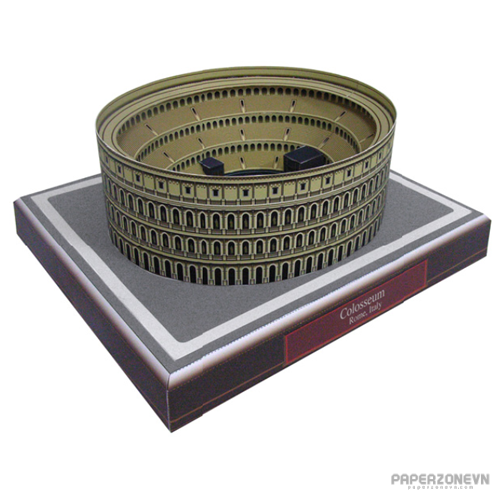- Thumbnail
-

- Resources
- Canon papercraft
- Author
- Unknown.
- Printed File Format
- Page(s)
- 6
- Instruction Format
Sponsored:
Sponsored 2:
[Italy] Colosseum Papercraft
The Colosseum (/ˌkɒləˈsiːəm/ KOL-ə-SEE-əm; Italian: Colosseo [kolosˈsɛːo]) is an oval amphitheatre in the centre of the city of Rome, Italy, just east of the Roman Forum. It is the largest ancient amphitheatre ever built, and is still the largest standing amphitheatre in the world today, despite its age. Construction began under the emperor Vespasian (r. 69–79 AD) in 72 and was completed in 80 AD under his successor and heir, Titus (r. 79–81).[2] Further modifications were made during the reign of Domitian (r. 81–96). The three emperors that were patrons of the work are known as the Flavian dynasty, and the amphitheatre was named the Flavian Amphitheatre (Latin: Amphitheatrum Flavium; Italian: Anfiteatro Flavio [aɱfiteˈaːtro ˈflaːvjo]) by later classicists and archaeologists for its association with their family name (Flavius).

The Colosseum (/ˌkɒləˈsiːəm/ KOL-ə-SEE-əm; Italian: Colosseo [kolosˈsɛːo]) is an oval amphitheatre in the centre of the city of Rome, Italy, just east of the Roman Forum. It is the largest ancient amphitheatre ever built, and is still the largest standing amphitheatre in the world today, despite its age. Construction began under the emperor Vespasian (r. 69–79 AD) in 72 and was completed in 80 AD under his successor and heir, Titus (r. 79–81).[2] Further modifications were made during the reign of Domitian (r. 81–96). The three emperors that were patrons of the work are known as the Flavian dynasty, and the amphitheatre was named the Flavian Amphitheatre (Latin: Amphitheatrum Flavium; Italian: Anfiteatro Flavio [aɱfiteˈaːtro ˈflaːvjo]) by later classicists and archaeologists for its association with their family name (Flavius).

Sponsored: Google Advertising
Attachments
Last edited by a moderator:
